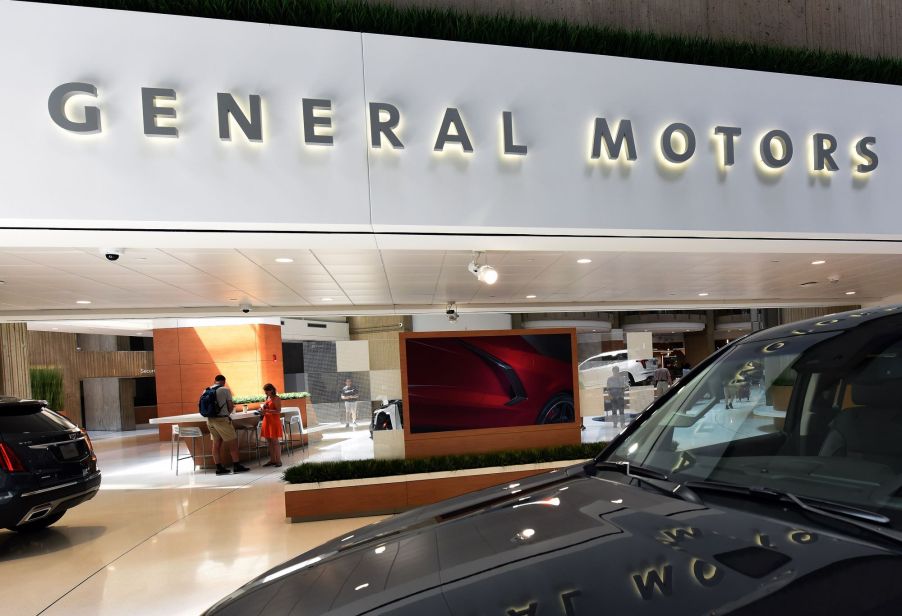
GM Confirms Its Fight in EV for Commercial Customers
Sales of electric vehicles (EVs) have gone through the roof in 2021. Sales are booming globally despite the global disruption caused by the pandemic, a global semiconductor shortage, and various lobbyists trying their hardest to slow down the transition to EVs. Even manufacturers like General Motors (GM) are setting their sights on overthrowing Tesla. With Tesla seeing six-figure sales numbers per quarter in 2021, GM has its sights set on a segment of the EV market that may give it an edge.
The progression toward EVs has many vehicle manufacturers scrambling

The White House reported on August 5 that President Biden signed an executive order pledging that half of the new vehicles sold are to be EVs by 2030. To incentivize vehicle manufacturers to get on board, the Biden administration will raise EPA mileage standards. The standards countermand cuts in EPA standards set by Trump and exceed Obama’s. In addition to that, Biden’s administration also plans to tighten car and truck fuel emission standards to promote EV sales.
Globally, well-established automakers are tossing their old business models aside and adopting new paradigms in which electricity replaces fossil fuels. Many of them are overhauling factories to produce EVs while snatching up every battery and semiconductor available. Paradigm shifts are expensive endeavors in the automotive industry, especially when it involves developing EVs. As a result, companies are either partnering up or have become targets of acquisition.
Forward-looking automakers care less about what their rivals are building and more about strict emission standards established in regions such as Europe and China.
GM announced a move to produce commercial EVs
According to CNBC, GM’s CEO Mary Barra confirmed in early August that the automaker is adding a battery-electric medium-duty truck for utility and service, as well as a Chevy all-electric cargo van. The medium-duty truck will feature GM’s Hydrotec fuel cells and its large-scale, high-energy Ultium battery system. Both the medium-duty truck and cargo van will become available at some point after 2025, CNBC reported.
Barra told investors during an earnings call that “Both [vehicles] will complement BrightDrop and keep our commercial fleet market share growing.” These commercial EVs are a part of GM’s plan to increase spending by 30% on electric and autonomous vehicles. According to previously announced plans, spending would increase to $35 billion. But GM isn’t alone. It seems GM’s plan to go electric by 2035 isn’t merely a pipe dream after all.
Ford, Daimler AG, and Amazon-backed Rivian have also announced their plans to enter the commercial EV segment. “The commercial market is expected to be a major growth area for EVs,” CNBC concluded.
It’s all about being a thorn in Tesla’s side
Reuters reported that companies like GM, Ford, and at least two other EV startups target a potentially remunerative segment not yet dominated by Tesla. While commercial fleet EVs still comprise a relatively small portion of the overall industry, demand for such vehicles is guaranteed to explode within the decade.
Scott Phillippi, UPS senior director of fleet maintenance and engineering, told Reuters that the shipping and receiving company believes electric vans will likely disrupt the commercial market the same way Tesla’s Model 3 disrupted the consumer market. GM’s all-electric battery cargo van is oriented toward the emerging commercial delivery vehicle segment.
“For established players, this is a hugely profitable business segment driven by cost of ownership, not fancy tech or star power. Reuters reported it is also a segment in which Tesla and its high-profile CEO, Elon Musk, lack an entry to compete for sales and CO2 credits, which allow automakers to offset the sale of non-electric vehicles, including high-margin pickups and SUVs.”
Elon Musk has promised a commercial electric van for several years already. Business Insider reported back in January of this year that Musk said Tesla plans to build an electric van “at some point.” Musk said that the biggest roadblock thus far has been battery-cell production limitations. Tesla has been doing its best to solve low output volumes by producing its own cells.
But as we’ve reported in recent articles, an automotive-semiconductor shortage constrains EV production globally, with no end in sight. On top of that, Musk stated in an earnings call that “…there is fundamentally a constraint on battery cell output…we simply don’t have enough cells built.” Commercial vehicles such as a cargo van and Tesla’s semi-truck require more cells than a consumer vehicle. This means that battery cell volume will remain one of Tesla’s primary hurdles for a while.
For now, GM, Ford, and Daimler AG seem to have a significant jump on the Silicon Valley-based tech company. Just don’t underestimate the ingenuity of someone who has the money to launch their vehicles into space—using their own rockets.


